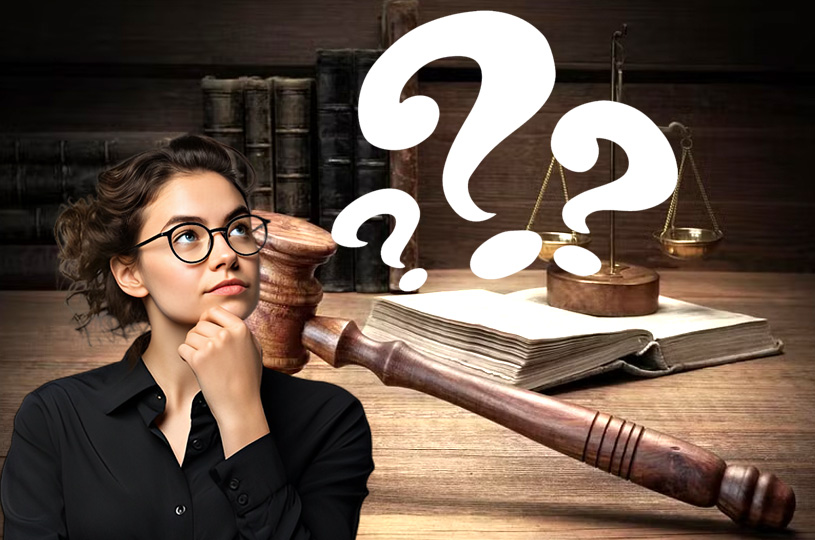The probate process can be overwhelming, especially if you’re handling the estate of a loved one. But do you really need a probate lawyer to navigate it? This blog explores the key scenarios where hiring a probate attorney is beneficial, the probate process itself, and how to ensure everything runs smoothly while protecting your rights and interests.
What Is Probate and Why Is It Necessary?
Probate is the legal process of settling a deceased person’s estate, including distributing assets and paying debts. While some estates can avoid probate through measures like trusts, many require court oversight.
Key Reasons Probate May Be Necessary:
- Verifying the validity of a will.
- Appointing an executor or administrator.
- Resolving disputes among heirs.
- Settling outstanding debts or taxes.
If you’re unfamiliar with estate planning, check out our article on what happens to house in trust after death to understand how trusts can bypass probate.
Do You Need a Probate Lawyer to Settle an Estate?
The need for a probate lawyer depends on the complexity of the estate and your comfort level with legal proceedings.
Scenarios Where a Probate Lawyer Is Essential:
- Disputed Wills: If there’s disagreement among beneficiaries, a lawyer can mediate or represent you in court.
- Intestate Estates: When no will exists, legal guidance is crucial for navigating state laws.
- High-Value or Complex Estates: Estates with multiple properties, businesses, or substantial debts require specialized expertise.
For simpler estates, like those without assets, you may want to explore our guide on how to settle an estate with no assets.
Why Would You Need a Probate Lawyer?
Probate attorneys provide expertise in handling estate administration efficiently while ensuring compliance with local laws.
Key Benefits of Hiring a Probate Lawyer:
- Legal Expertise: Prevent costly mistakes by ensuring all paperwork is filed correctly.
- Time Savings: Streamline the process and avoid unnecessary delays.
- Conflict Resolution: Address disputes objectively, reducing emotional stress.
- Representation in Court: If the probate process becomes litigious, a lawyer will defend your interests effectively.
Discover more about estate disputes and conflict resolution through our article on avoiding probate court.
Steps to Take When Hiring a Probate Lawyer
If you’ve decided that hiring a probate lawyer is the best choice, follow these steps:
- Evaluate Your Needs: Consider the complexity of the estate and the level of legal support required.
- Research Local Attorneys: Choose a lawyer experienced in probate law and familiar with state-specific regulations in Texas, Georgia, or Mississippi.
- Ask Questions: Inquire about fees, timelines, and the probate process to ensure transparency.
For additional legal assistance, read more about our expertise in handling matters like 3rd party debt collection and corporate litigation.
What to Expect from a Probate Attorney
When working with a probate lawyer, you can expect:
- Initial Consultation: Discuss the details of the estate and receive an outline of the process.
- Document Preparation: Assistance with wills, inventory of assets, and court filings.
- Ongoing Support: Guidance through each step of the probate process.
Why Choose English Law Firm?
At English Law Firm, we understand the complexities of probate law and provide personalized support to clients in Texas, Georgia, and Mississippi. Whether you’re settling a simple estate or managing a contentious probate case, our experienced attorneys ensure your peace of mind.
Key Differences Between Probate With and Without a Lawyer
| Aspect | With a Lawyer | Without a Lawyer |
| Legal Expertise | Comprehensive guidance | Limited understanding |
| Time Investment | Reduced | Significant personal time |
| Conflict Resolution | Professional mediation | Risk of prolonged disputes |
| Compliance with Laws | High | Potential for errors |
Common Questions About Probate Lawyers
1. Does a will prevent probate?
No, having a will does not necessarily avoid probate. However, a properly structured estate plan, such as a trust, can bypass probate in certain situations.
2. Do all estates go through probate?
Not all estates require probate. Small estates and those with joint ownership or designated beneficiaries may avoid it.
3. Do I need an attorney to probate a will?
While it’s possible to probate a will without an attorney, legal guidance ensures the process is smooth and compliant with state laws.
4. Why does probate require a lawyer?
A lawyer can help with interpreting the will, identifying beneficiaries, resolving disputes, and ensuring all legal obligations are met.
Conclusion
Hiring a probate lawyer depends on your specific circumstances, but their expertise can simplify the process, save time, and prevent costly mistakes. If you’re navigating probate or need legal advice, contact English Law Firm for compassionate, expert assistance.Take the next step in safeguarding your estate by exploring related resources on avoiding probate court and how to settle an estate with no assets.

